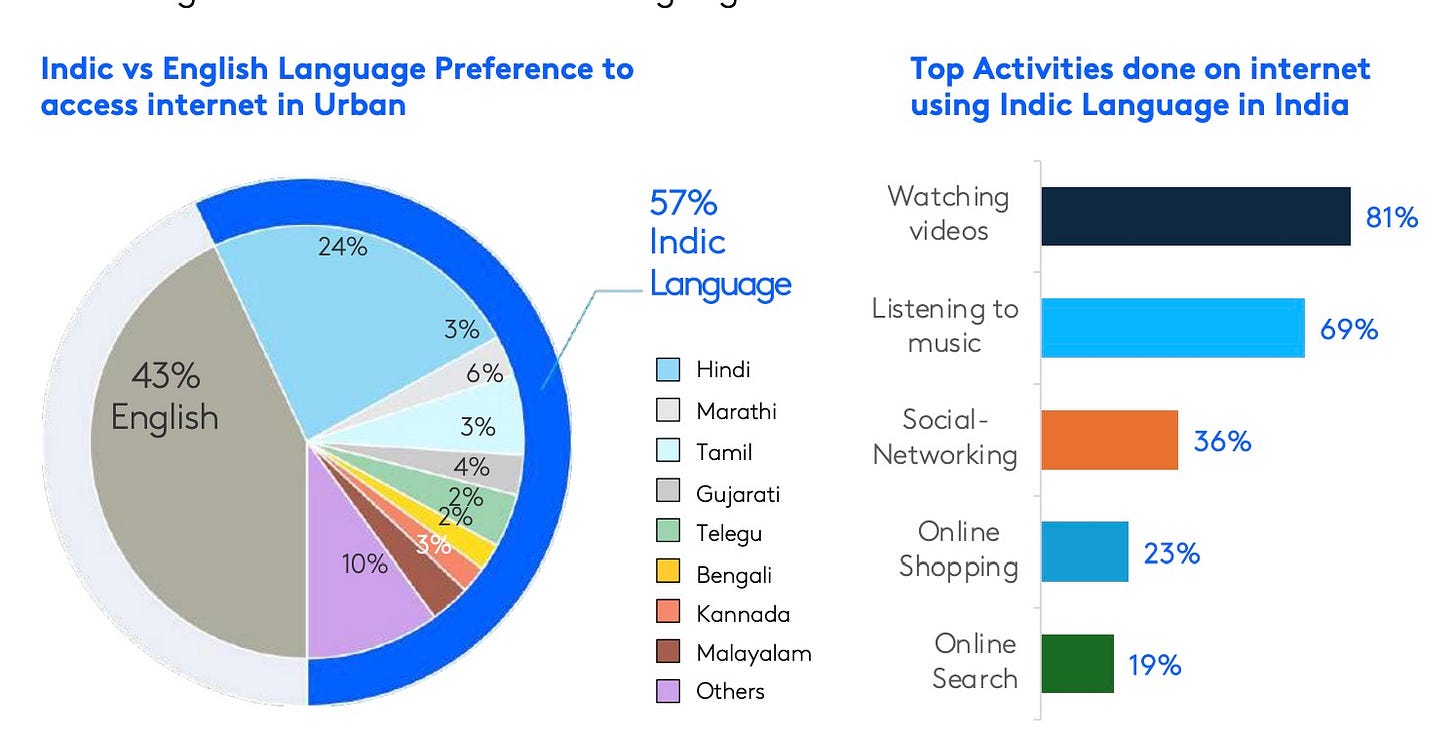Narendra Modi's many AI voices
On March 17th, podcaster Lex Fridman posted a three-hour-long interview with India’s Prime Minister Narendra Modi. Typically, Modi doesn’t sit down for long conversations. A recent exception is when he sat down with Indian trading platform Zerodha’s co-founder Nikhil Kamath.
More than the topic of the conversation, what struck me was when voice AI startup ElevenLabs announced that it helped in dubbing voices in different languages. The original conversation has Fridman speaking in English and Modi in English. There are full dubs available in Russian and Spanish, too.
What’s notable is the lack of Indic languages apart from Hindi. That puts the conversation out of limit for some users who consume content in their native languages.
Indian internet users’ primary activity is consuming videos. It is also the top activity for language-specific internet activity. While Hindi represents a bigger chunk, other languages also form 33% of the country's internet consumption cluster.

YouTube is a massive platform for content in India — both for creators and users. There are language-focused YouTube creators and channels that have millions of subscribers. There is an opportunity to cross-sell content in different languages.
That’s where AI could possibly play a bigger role. After Fridman published his interview, Indian AI startup Sarvam’s founder Pratyush Kumar posted a clip from the conversation in different languages using the company’s AI models. However, these clips were just dubbed versions, and there was no lipsync. Another Indian founder, Pavan Reddy, who is building a lipsync model through Sync, posted a lipsynced version of the conversation.
India is a content-guzzling market, and there are tons of users ready to consume content through different mediums and languages. Popular figures like Modi, would connect with audiences more often if the content is available in various languages. People are eager to watch different kinds of content as long as it is available in their native languages. A research platform called Digital Desh highlighted in its report about Bihar that people watch Hollywood and South Indian movies along with Korean content dubbed in Hindi.
“When it comes to music and movies, 97% of everyone we interacted with watches and listens to everything in Hindi,” the report said.
The opportunity for AI companies is to take one piece of content and modify it for various audiences. Content companies like Pocket FM, Kuku FM, and Stage are realizing that there is value in content produced for the masses and in masses regardless of cultural origins. Previously, it took a lot of money and effort to convert one IP in one language to another. Now, with AI tools, there is a chance of reaching more consumers.
That’s why AI companies that provide tooling to convert one piece of content into different formats and different languages easily become important. For instance, ElevenLabs is a good example, as it helps companies convert text written in one language to audio in multiple languages.
India will always be a country that wants more content. Startups will need to figure out the way to produce (or convert from one form/language to another) more and more content. Either they will have to find ultra-cheap ways to mass-produce content or use AI to do this job. As content increases, AI tools will get more “work,” and we will possibly get to listen to one voice in multiple languages.

